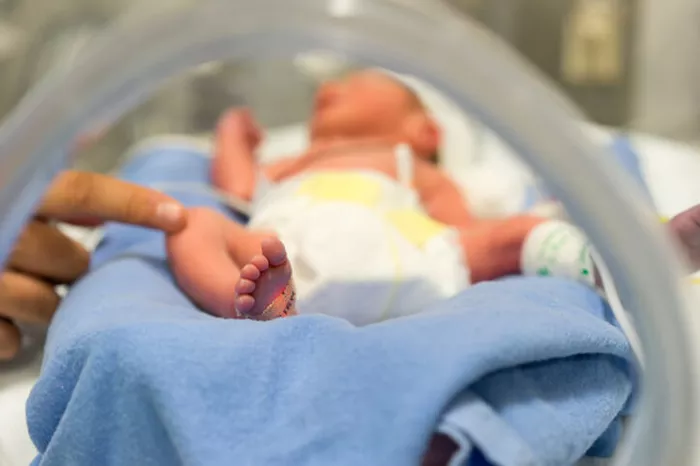A new study suggests that giving repeated antibiotics to very small, premature babies born by cesarean section may lead to long-term lung problems, including wheezing and reduced lung function.
The research, published in JAMA Network Open, focused on babies born very early with very low birth weight (VLBW)—under 1,500 grams—and delivered by C-section. These babies often receive antibiotics shortly before and after birth to prevent infections. However, scientists now believe these repeated antibiotic treatments may be linked to future breathing issues.
Why This Study Matters
Doctors already know that premature babies are more likely to face chronic lung problems. Their lungs are underdeveloped, and they often need extra oxygen or machines to help them breathe. But this study looked at something new: whether early antibiotic use, especially multiple doses, could make things worse.
Animal studies have shown that antibiotics may change the way lungs develop. In people, past research has linked antibiotics before birth with a higher risk of asthma in childhood. This new study focused on how these risks play out for preterm babies born by C-section, who often have less exposure to healthy bacteria during birth and may get more antibiotics than babies born vaginally.
About the Study
The study was part of the large German Neonatal Network (GNN), which included more than 22,000 premature infants. Researchers focused on 3,820 of those who were born between 22 and 36 weeks of pregnancy, had very low birth weight, and were delivered by C-section. These children were tracked and studied between the ages of 5 and 7.
To measure how antibiotics might affect lung health, scientists looked at how often the children received antibiotics before and after birth. They grouped them into three categories:
- ARS I: One-time exposure (antibiotics during the C-section only)
- ARS II: Two exposures (C-section antibiotics plus antibiotics after birth)
- ARS III: Three exposures (before birth, during C-section, and after birth)
They then tested the children’s lungs using spirometry, a simple breathing test that measures how much air a person can blow out.
Key Findings
The more antibiotics the babies had received, the worse their lung function seemed to be by the time they reached school age. Children in the highest antibiotic group (ARS III) had the lowest scores on lung function tests.
Compared to the lowest group (ARS I), kids in ARS II and ARS III had lower scores in forced expiratory volume (FEV₁)—a key measure of how well someone can exhale. Children in ARS III were also 91% more likely to have asthma-like episodes than those in ARS II.
The study also found that overall lung capacity (measured by forced vital capacity, or FVC) was lower in children with higher antibiotic exposure.
Cautions and Limitations
The researchers say the results are concerning, but they can’t prove for certain that antibiotics caused the lung problems. The study was observational, which means it can only show associations—not direct cause and effect.
Also, only about 23.5% of the original group came back for follow-up, and some of the most at-risk kids (like those with cerebral palsy) weren’t able to take the lung tests. The study also didn’t look at which specific antibiotics were given or for how long.
What Doctors Are Saying
Despite the limitations, experts say this research is important. It adds to growing evidence that we need to be more careful with how we use antibiotics in newborns—especially fragile preemies.
The authors recommend better antibiotic stewardship, meaning doctors should be careful not to overuse antibiotics in babies who may not really need them. They also encourage programs that support respiratory health, such as monitoring lung function over time and promoting breastfeeding, which may help build a stronger immune system and healthier lungs.
Conclusion
Babies born too early already face many health challenges. This study shows that repeated antibiotics might make things harder for their lungs in the long run. More research is needed, but for now, doctors are urged to think carefully before giving antibiotics to premature infants unless truly necessary.
Related Topics:
- Hidden Cancer-Causing Chemical Found in Common Beauty Products
- Eating Fiber-Rich Carbs May Help Women Age Healthier, Study Finds
- Healthy Diet May Delay First Period, Study Finds


